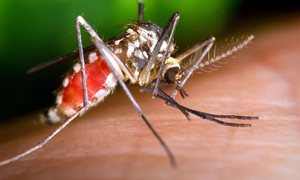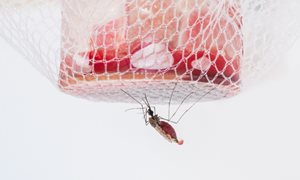23 April 2020
In the Journal of Antimicrobial Chemotherapy, the Radboudumc and Colorado State University group presents two mouse model experiments showing that inhaled tigecycline was well-tolerated and achieved eradication of M. abscessus from the lungs of all but one mouse. This dramatic effect is unprecedented for this bacterium, that is often dubbed the ‘antibiotic nightmare’.
The results of the current study suggest that development of an inhaled formulation of tigecycline may improve treatment outcomes of this severe lung infection.


In the Journal of Antimicrobial Chemotherapy, the Radboudumc and Colorado State University group presents two mouse model experiments showing that inhaled tigecycline was well-tolerated and achieved eradication of M. abscessus from the lungs of all but one mouse. This dramatic effect is unprecedented for this bacterium, that is often dubbed the ‘antibiotic nightmare’.
The results of the current study suggest that development of an inhaled formulation of tigecycline may improve treatment outcomes of this severe lung infection.

Related news items
.aspx?width=800&height=533&ext=.jpg&type=BlockColumn1Zoom1)
New test for Lyme disease is not reliable
15 June 2022 To determine whether someone has Lyme disease, doctors in the Netherlands often use antibody tests. For some time now, so-called cellular tests have been available on the market. However, the VICTORY study published in The Lancet Infectious Diseases has found that these tests are not reliable. read more
Field research on malaria vaccine offers unexpected surprise
23 May 2022Field research on the effectiveness of a malaria vaccine, came up with unexpected results for an international group of researchers including Benjamin Mordmüller of Radboudumc. The vaccine evokes a broader response against malaria proteins than there are in the vaccine.
read more
With concerted effort, tuberculosis could be eradicated in 30 years time March 24th was World Tuberculosis Day
24 March 2022 Since 2020, the number of deaths from tuberculosis increased for the first time in a decade, caused by the COVID pandemic: fewer people had access to the right care on time. Some catching up is needed. read more
Launch of UNITE4TB partnership marks a new era in Tuberculosis treatment development
15 July 2021 The partnership will accelerate the development of new Tuberculosis (TB) drug regimens as part of the Innovative Medicines Initiative (IMI), a public-private European Research & Development Consortium read more

